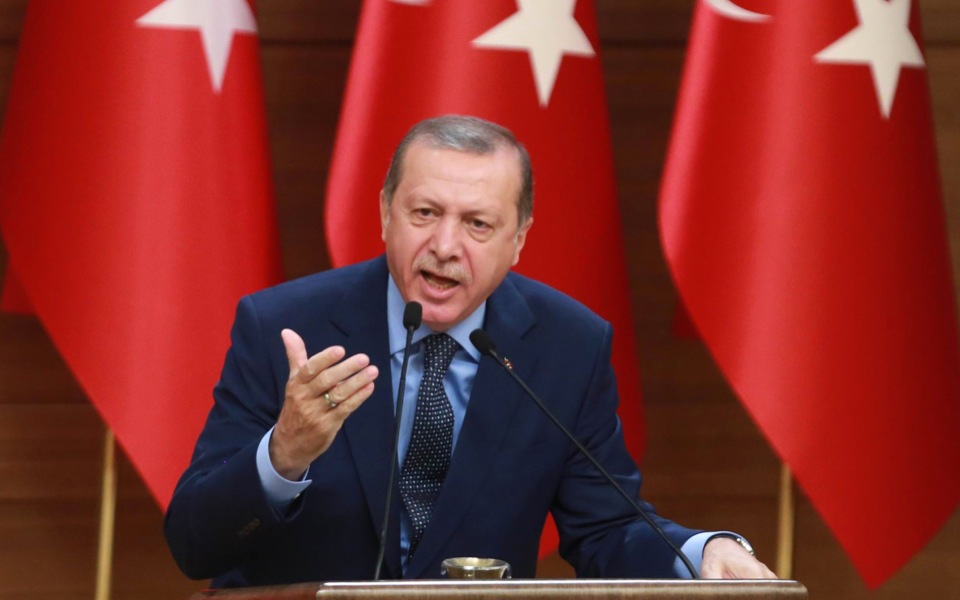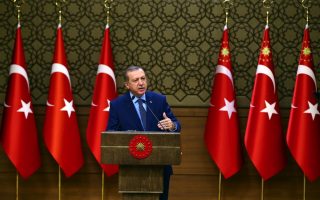Erdogan’s motives

Recent comments by Turkish President Recep Tayyip Erdogan, who said that the 1923 Treaty of Lausanne was a defeat for Turkey, are open to different interpretations. Most certainly they marked a negative development for Greek-Turkish relations – at least for as long as Turkey’s helm remains in the hands of a leader animated by a quest to build a neo-Ottoman or neo-Islamic regime. Recent developments have demonstrated that, first, Erdogan is Turkey’s unrivaled strongman and, second, the campaign to transform Turkey’s state apparatus is successfully moving ahead.
It is commonly believed in Greece that Erdogan’s comments on the treaty were mainly aimed at the opponents of the regime, particularly the secular-minded Kemalists, and Turkish citizens in general. The champions of this view, which include several government officials in Athens, are most likely trying to avoid spreading concern among the Greek people or fueling nationalist sentiment that could prove dangerous in the current volatile environment.
To be sure, the view is not unfounded. Erdogan himself said the “July 15 [coup attempt] is the second war of independence for the Turkish nation.” He essentially portrayed the Treaty of Lausanne as a defeat for his nation and blamed that defeat on the Kemalist establishment, which he accused of trying to deceive the Turkish people because it “gave away” islands to Greece.
At the same time, the accord, which set the borders of modern Turkey, was signed by many countries and is therefore an international treaty.
But when Erdogan singles out the Aegean islands – while choosing to forget that they had already been under Greek control since 1912 – it seems reasonable to assume that he aims to revise or scrap the treaty. So some concern in Athens would be justified. And not because he intends to claim Greek territory using military means. He would not do that. But because he is adding yet another headache.
Most likely, the Turkish leader is conjuring up and saving up new bargaining (or blackmail) chips vis-a-vis the European Union and the West.
Is he worried about the prospect of a Kurdish state with the blessing of the West on Turkey’s eastern border and issuing threats to the West deeming that such an event would cancel the Treaty of Lausanne? Or is he sending a message to the EU ahead of the mobilization of the new European Border and Coast Guard or the launch of some kind of EU-NATO force?
Whatever Erdogan’s motivation was, his comments were certainly not designed solely for domestic consumption.





